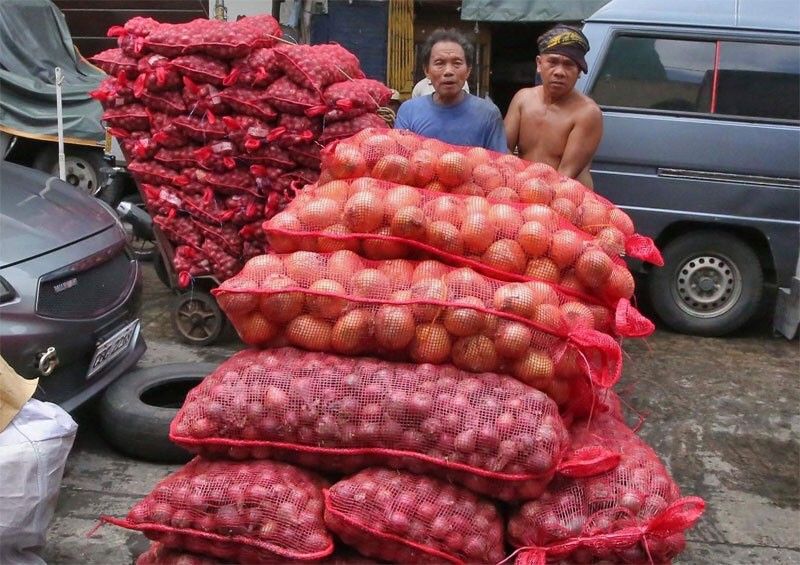A porter pushes a cart loaded with red onions in Binondo, Manila on May 16, 2023. STAR / Ernie Penaredondo
MANILA — Farmers’ group Samahang Industriya ng Agrikultura (SINAG) warned yesterday that the retail price of onions could reach as high as P500 to P700 per kilo amid the abrupt spike in the cost of the bulbs.
In an interview with The STAR, SINAG executive director Jayson Cainglet said the upward trend in the retail prices of onions will continue as prices have reached as high as P200 per kilo.
Cainglet added that the Department of Agriculture (DA) and Bureau of Plant Industry (BPI) should inspect cold storage facilities to determine inventories. He also noted that the DA and BPI have yet to issue an actual inventory of the onions.
“The Bureau of Plant Industry should be aggressive as the stocks are no longer in the hands of farmers. The onion industry is only small and DA knows the key people, the big traders and cold storage owners,” Cainglet said.
“During the peak harvest, the farmgate prices only ranged between P50 and P80 per kilo so at most, the retail price should not exceed P200 per kilo,” he added.
SINAG president Rosendo So warned that the stocks of white onions will be depleted by July and that imported white onions should start to arrive that month to prevent another shortage after retail prices skyrocketed to P720 per kilo last December due to scarcity in supply.
BPI spokesnan Diego Roxas confirmed So’s statement that the stocks of white onions are only good until July.
“Our white onions will last until mid-July and for red onions, we expect enough supply until November or December,” Roxas said.
Roxas admitted that BPI has yet to finalize the volume of local onion production for this year.
“As of now, we still have no exact figures in terms of metric tons, but based on the historical data and production months of onions, we expect a shortage in the supply of onions in December,” he added.
Cainglet said the DA and BPI should allow the calibrated importation of onions.
“The DA can approve the importation of half of the supposed volume of needed importation,” he said.
For his part, Philippine Chamber of Agriculture and Food Inc. (PCAFI) president Danilo Fausto said that at least 70,000 metric tons of onions should be imported to address the possible shortage.
“Based on our 10-year consumption from 2011 to 2021, our weighted average consumption was 179,000 metric tons (MT). The per capita is at 2.34 kilos and if you have 112 million total population, that is about 262,000 MT,” Fausto said.
He said the total local onion production was only at 220,000 MT.
“Our harvest is only at 220,000 MT. If our consumption is at 262,000 MT, we still need at least 70,000 MT to address the shortfall, otherwise we will have problems again in the retail prices,” Fausto added.
Meanwhile, a senior official of the DA vowed there will be no repeat of the crisis of onions that was experienced in 2022, when the retail price skyrocketed to P700 per kilo.
“There will be no repeat, we assure you,” Undersecretary Domingo Panganiban said.
Panganiban gave the assurance amid warning from farmers’ groups SINAG and PCAFI on the possible shortage of the bulbs starting middle of July.
“We still cannot say what is true. Many are saying we have plenty of onions in the Philippines but some are also saying we don’t have enough supply. We will determine if there is really a shortage,” Panganiban said.
He added the BPI has yet to issue permits for the importation of onions.
“Let me tell you frankly, we have not issued any permit for onion importation for the last four months. Now Congress is asking ‘why are you not importing.’ We are not importing as we still have a supply of onions in the country,” Panganiban said.
“We cannot do anything about it if the institutional buyers used all the stocks of white onions,” he said.
Based on monitoring of the DA on Wednesday, the retail prices of onions reached P200 per kilo at New Las Piñas City Public Market; Guadalupe Public Market in Makati City; Marikina Public Market and Mega Q-Mart in Quezon City.


Leave A Comment